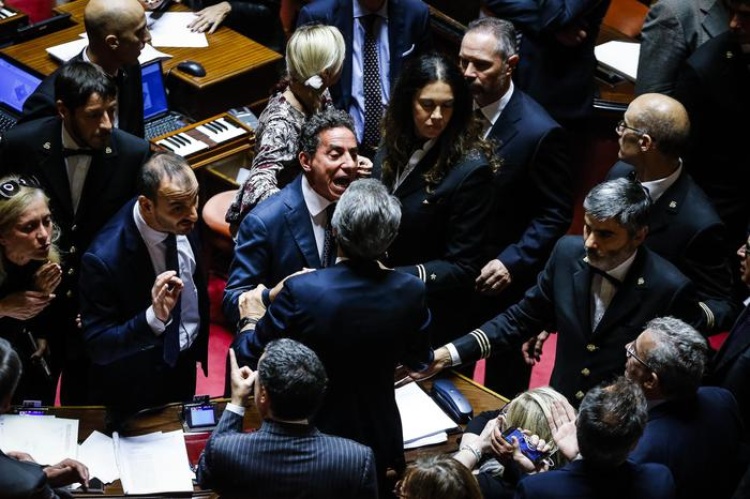The first four votes and the sixth vote were confidence votes, while the fifth was a normal electronic vote.
A final vote has been set for Thursday, and will not be a confidence vote.
Article 1 of the so-called “Rosatellum” was approved with 150 votes in favour and 61 against, while Article 2 went through with 151 votes in favour and 61 against, Article 3 by 148 votes to 61, Article 4 by 150 to 60, and Article 6 by 145 to 17.
The support of the ALA group, led by Silvio Berlusconi’s former top aide Denis Verdini, was key to the passage of the votes.
The bill, which has cleared the Lower House, is fiercely contested by the anti-establishment 5-Star Movement (M5S), which argues that it is designed to prevent the party from winning next year’s general election.
The M5S has accused the ruling Democratic Party (PD) and Silvio Berlusconi’s Forza Italia (FI) of “aggravated fraud” over the bill.
The M5S met outside the Pantheon to protest the bill on Wednesday, with party founder Beppe Grillo fighting against it in the name of the “whole Italian people”.
Grillo said he was “here for the Italian people” as he arrived on a stage erected outside the iconic ancient Roman temple to all the gods.
“Lower your banners, we are fighting a battle for all the Italian people,” he added.
“We weren’t able to stage a protest outside the Senate because they were afraid of us. Let them do what they want, let them rig the election law, we shall overcome.”
Grillo, Di Maio and the fellow M5S heavyweight, Alessandro Di Battista, put blindfolds over their eyes to protest against the election law and how it was being rammed through parliament by confidence votes.
Thousands of M5S supporters in the square did the same.
Grillo thanked the demonstrators who had come from all over Italy and the M5S senators, who he said were “incredible” and “angrier than me”.
The vote has divided the entire Italian political scene.
Former Italian president, Giorgio Napolitano, stressed that he deemed it wrong to press Premier Paolo Gentiloni to put the bill to a confidence vote to help get it through parliament in time for it to be used for elections next year.
“I judged it unusual and extremely improper to make the responsibility of a confidence vote that guarantees the intangibility of a proposal agreed on by several parties weigh on the premier,” the former head of state said.
He said that Gentiloni had been subjected to “strong pressure”.
Napolitano added that he was going to vote yes to the confidence votes for the sake of “stability”, but warned that “rapidity must not compress the role of parliament”.
With ANSA












